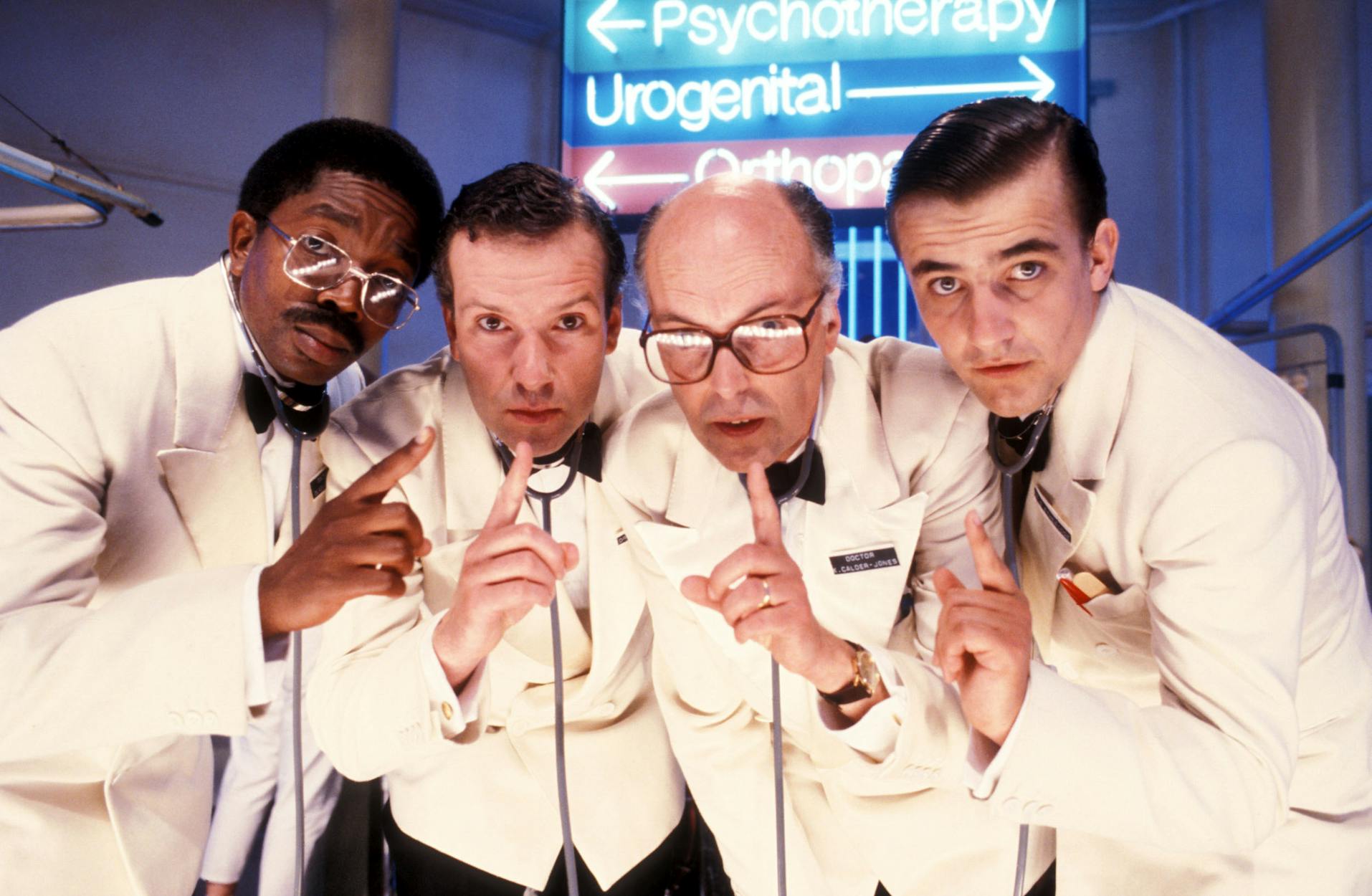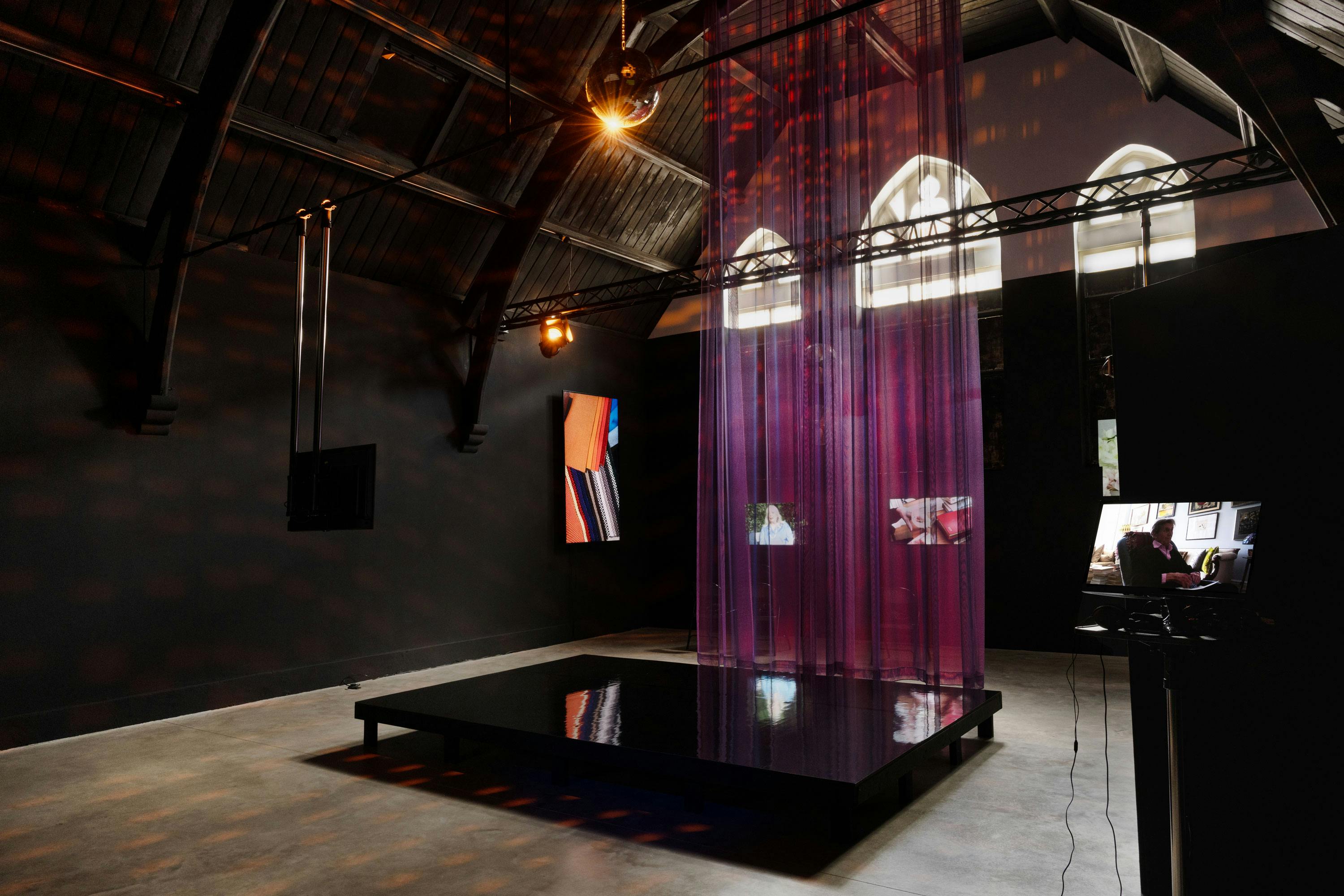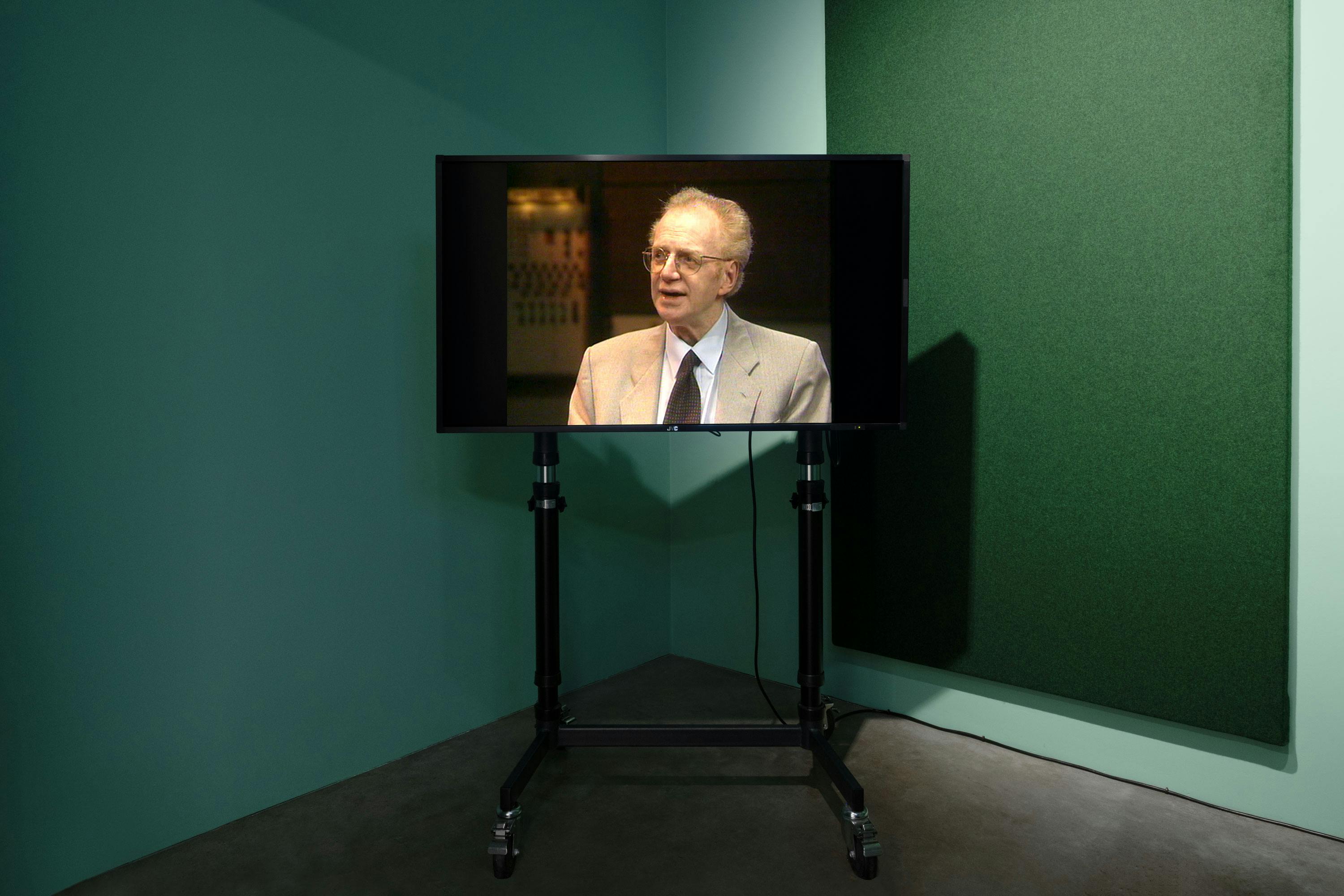Content warning: This programme features works originally broadcast on television between the 1960s and 1980s. Some material may contain outdated or offensive language, cultural depictions and attitudes, and references to subject matter that some audiences may find distressing. Detailed content notes are provided for each screening. If you would like to discuss any of the works in advance, please feel free to contact us at access@studiovoltaire.org.
Dennis Potter Screening Programme
Taking place as part of the public programmes for Hilary Lloyd Very High Frequency, this screening programme surveys key and rarely seen works by Dennis Potter.
The programme primarily focuses on Potter’s work for the BBC’s groundbreaking anthology drama series The Wednesday Play (1964–1970) and its successor Play for Today (1970–1984). Reflecting then-contemporary social and political contexts, these single-play formats became platforms for provocative storytelling that encompassed realism, satire and experimental drama. The series, which included Potter’s early semi-autobiographical works such as Stand Up, Nigel Barton (1965), helped launch his career, alongside directors such as Ken Loach and, later, Alan Clarke and Stephen Frears.
Two special marathon screenings showcase Dennis Potter’s most significant television serials. Pennies From Heaven (1978) marked Potter’s first major popular success and is recognised for transforming the possibilities of television drama. The Singing Detective (1986), widely regarded as his masterpiece, combines the themes and experimental structures of his earlier work to explore noir fantasy, childhood memory and musical interludes in a brilliant, hallucinatory narrative.
Potter’s readiness to engage with complex themes, including politics, class, illness, sexuality and religion, is a significant reminder of a time when a limited number of television channels vied for public attention and challenging content was broadcast to a mass audience.
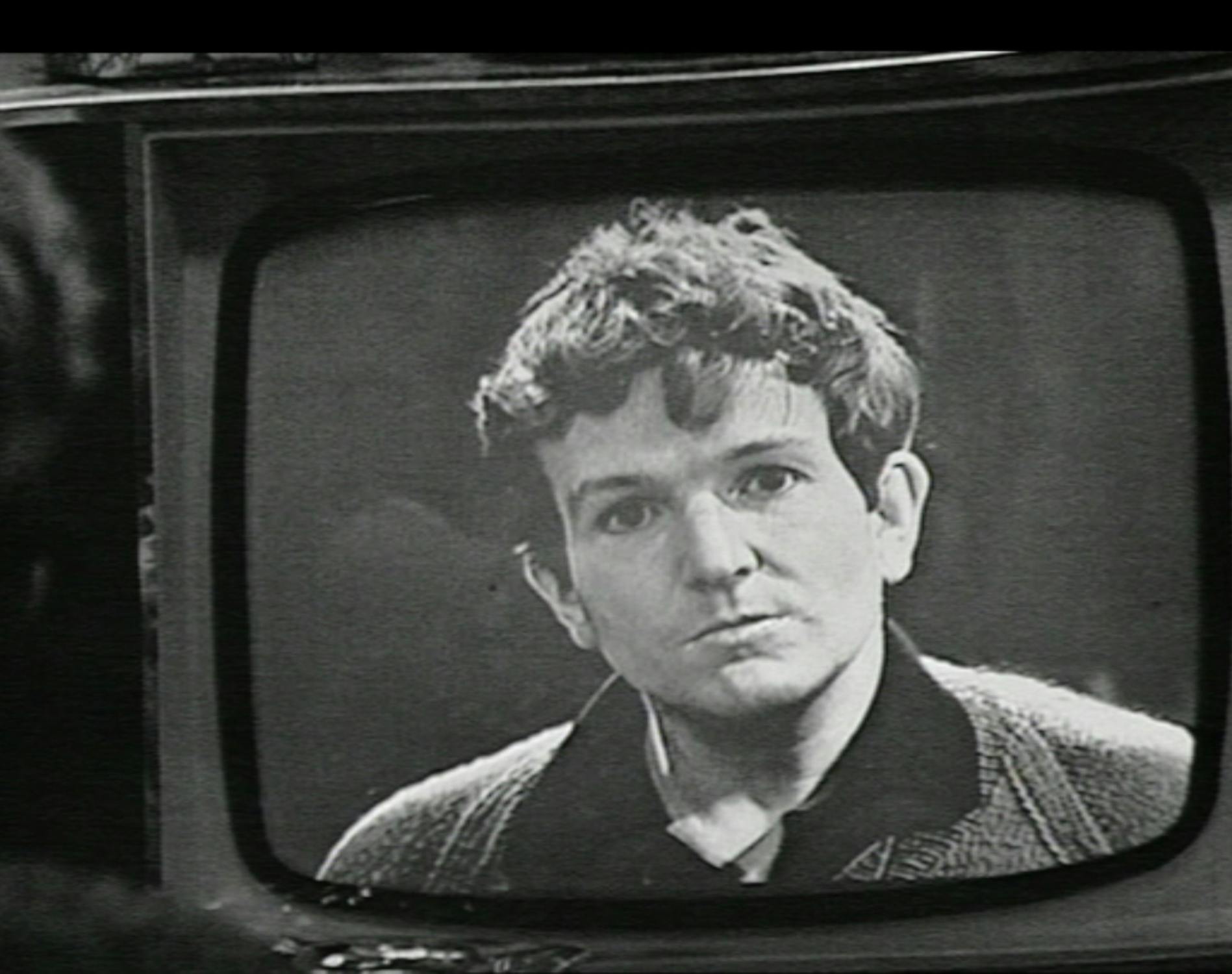
Stand Up, Nigel Barton (1965)
Wednesday 24 September 2025, 7–8.15 pm
First broadcast in 1965 on BBC1 as part of The Wednesday Play series, Stand Up, Nigel Barton is a semi-autobiographical work that draws from Dennis Potter’s experience as a working-class Oxford student from a small mining community.
Inspired by Potter's own student interview for the 1958 BBC series Does Class Matter? and filmed, in part, in Potter’s hometown, the Forest of Dean, the play has been described as the most autobiographical of Potter’s works. Played by Keith Barron, the protagonist faces class prejudice from both sides of the social divide when he is awarded a scholarship to Oxford University. Using adults to play children in flashback scenes and direct asides to the camera, Stand Up, Nigel Barton is one of the earliest examples of what would become signature devices, anticipating how Potter’s later works would develop.
Writer: Dennis Potter; Director: Gareth Davies; Producer: Graeme MacDonald
Runtime: 75 mins
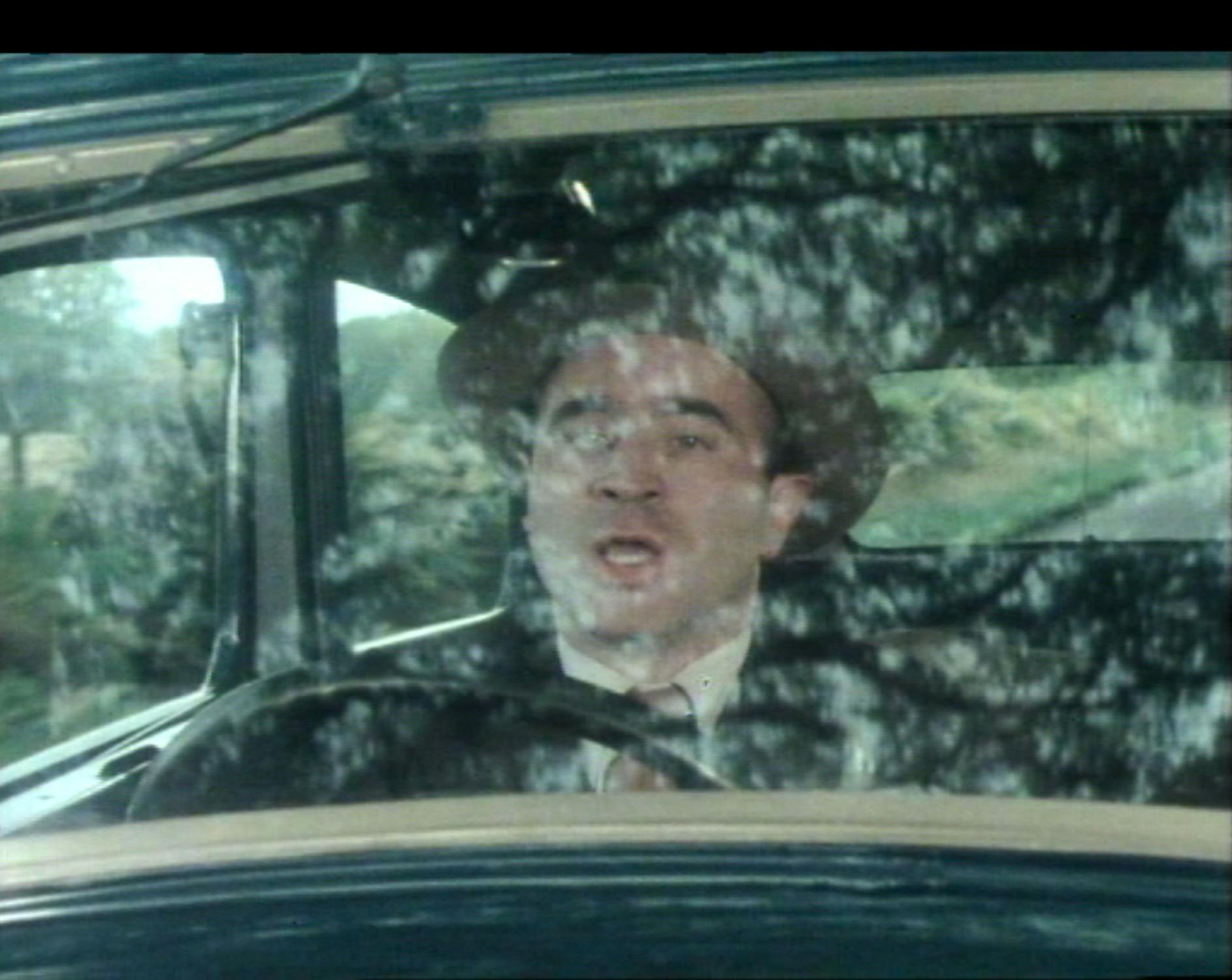
Pennies from Heaven (1978)
Saturday 4–Sunday 5 October 2025, 11 am–7 pm
Pennies from Heaven tells the story of Arthur Parker, a songsheet salesman whose fantasies, expressed through 1930s musical numbers, contrast with the grim reality of his life. Bob Hoskins stars as Arthur Parker, with Cheryl Campbell as his troubled lover and Gemma Craven as his wife, Joan. A tale of murder, lust, betrayal and frustration, the songs in Pennies from Heaven represent a brighter alternative for the characters gripped by hardship in Britain during the 1930s.
Initially aired by the BBC in 1978, Potter’s use of extended, lip-synced performances of popular songs was groundbreaking. The series would later be adapted into a Hollywood film, cementing Potter’s international reputation.
Writer: Dennis Potter; Director: Piers Haggard; Producer: Kenith Trodd.
This film has a total runtime of approximately 8 hours. Visitors are encouraged to come and go freely during the screening.
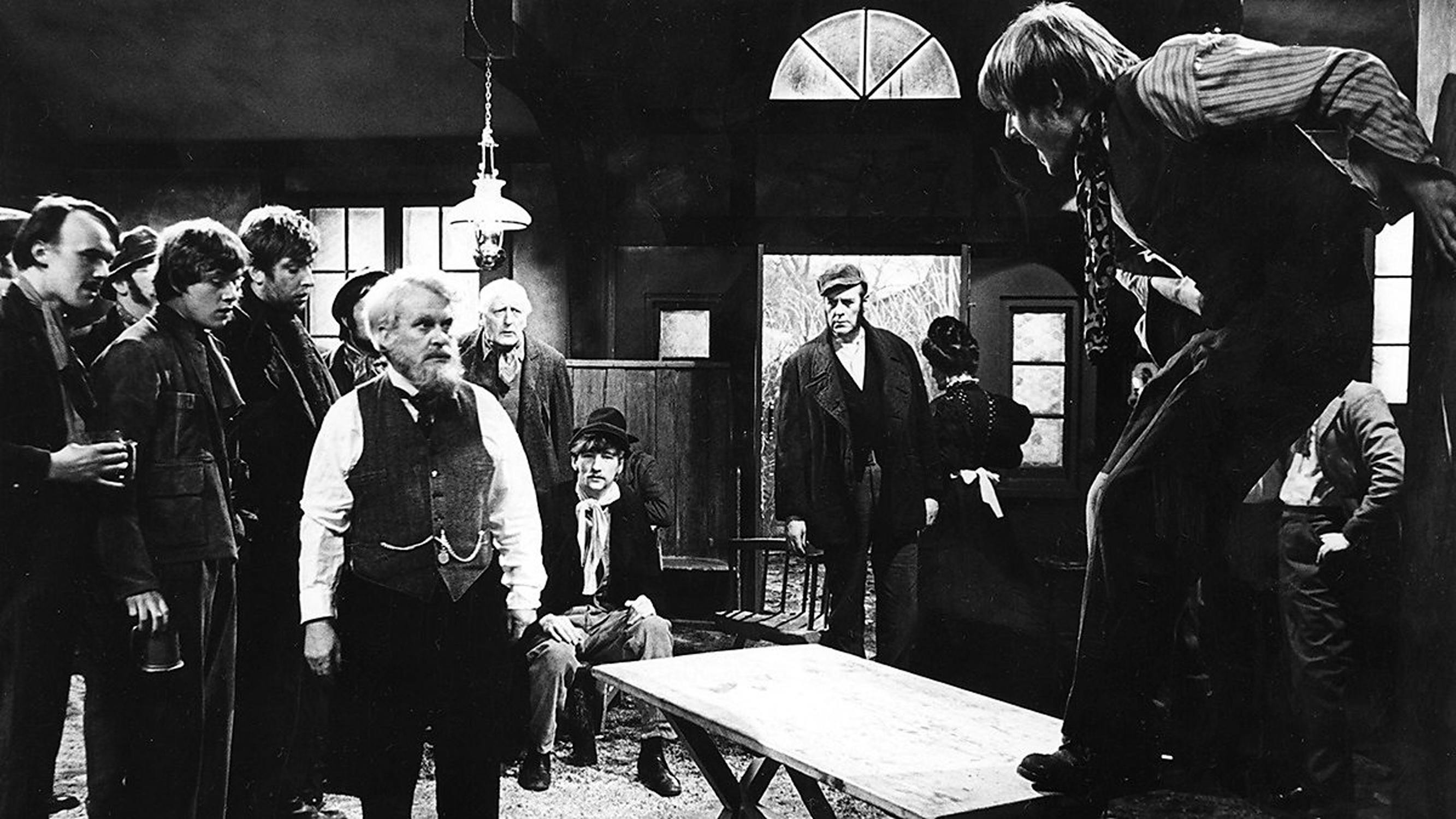
A Beast with Two Backs (1968)
Wednesday 8 October 2025, 7–8.15 pm
Set and filmed in Potter’s hometown of Berry Hill, Forest of Dean, the drama is a fictionalisation of a real incident. In the 1890s, four Frenchmen travelled to the area with dancing bears, who were subsequently killed by local miners in retaliation for a local tragedy. In Potter's drama, Patrick Barr plays Joe, an Italian man who arrives in the Forest of Dean with his bear, Gina. The pair are later accused of the murder of a local woman, aided by a misinterpreted sermon from the local preacher.
First aired on BBC1’s The Wednesday Play, the work tackles xenophobia, guilt and the brutality of groupthink in a rural community. A sensational story for press at the time, Potter's drama received some criticism from locals, prompting Potter to respond that rather than a retelling, "It is, for me, a story about suspicion, fear, poisonous rumour, deep hostility to the stranger and, in an odd sort of way, a parable about crime and punishments”.
Writer: Dennis Potter; Director: Lionel Harris; Producer: Graeme MacDonald.
Runtime: 71 mins
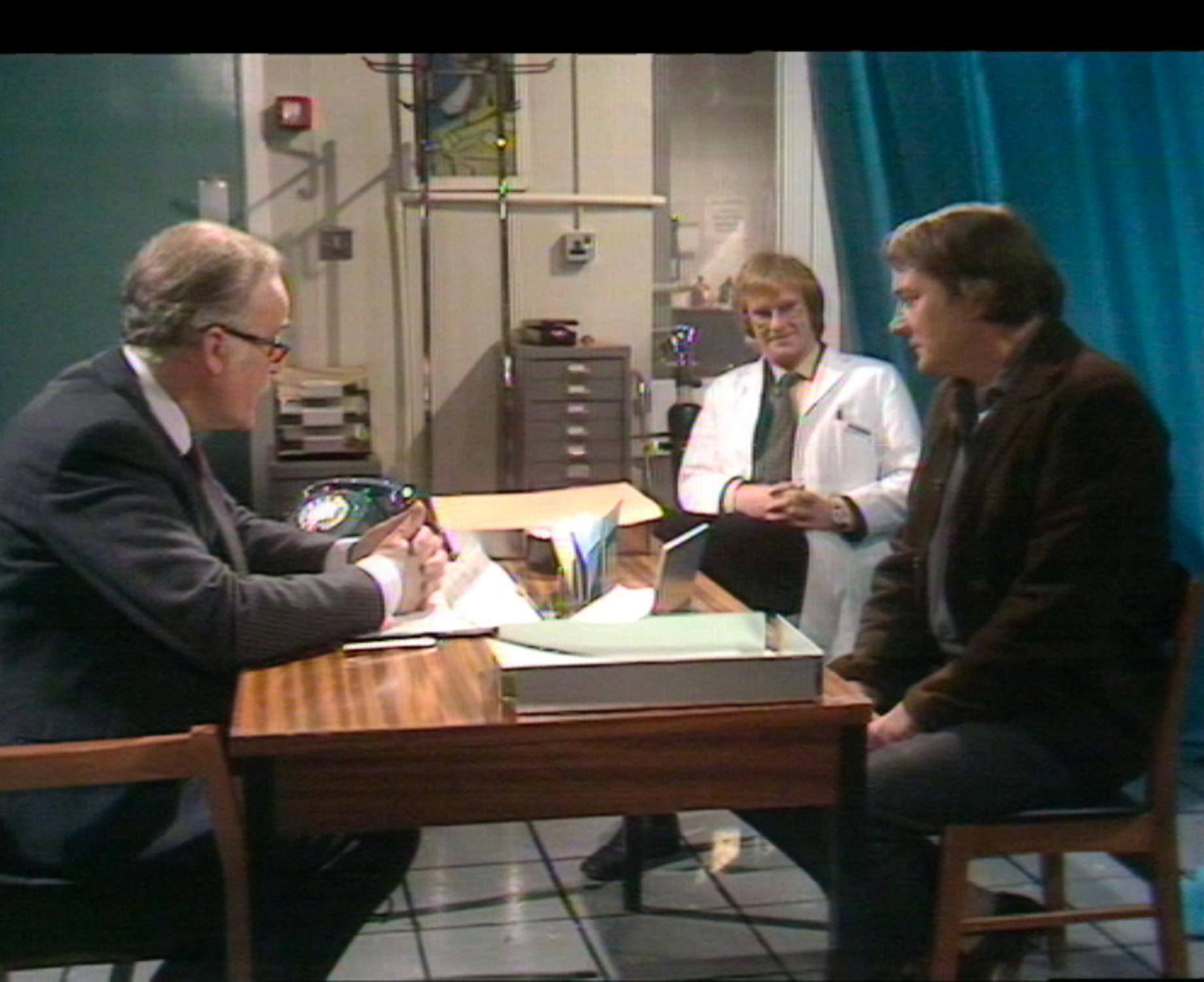
Follow the Yellow Brick Road (1972)
Wednesday 22 October 2025, 7–8.15 pm
Part of BBC2’s experimental The Sextet series, the play’s central figure, Jack Black, played by Denholm Elliott, is an actor who believes himself to be trapped in a television play, followed around by an invisible camera. Working in television commercials, Jack becomes caught between the 'clean' packaged fantasy of advertising and the theatre of his life once he learns of his wife's betrayal.
Seen as a conceptual forerunner to Pennies from Heaven, the play explores key Potter thematics across commercial culture, religion and psychiatry. In Follow The Yellow Brick Road, an omnipresent God has been replaced by a television camera, which becomes Jack's ever-present witness, as he descends into what appears to be a psychotic break.
Writer: Dennis Potter; Director: Alan Bridges; Producer: Roderick Graham.
Runtime: 68 mins
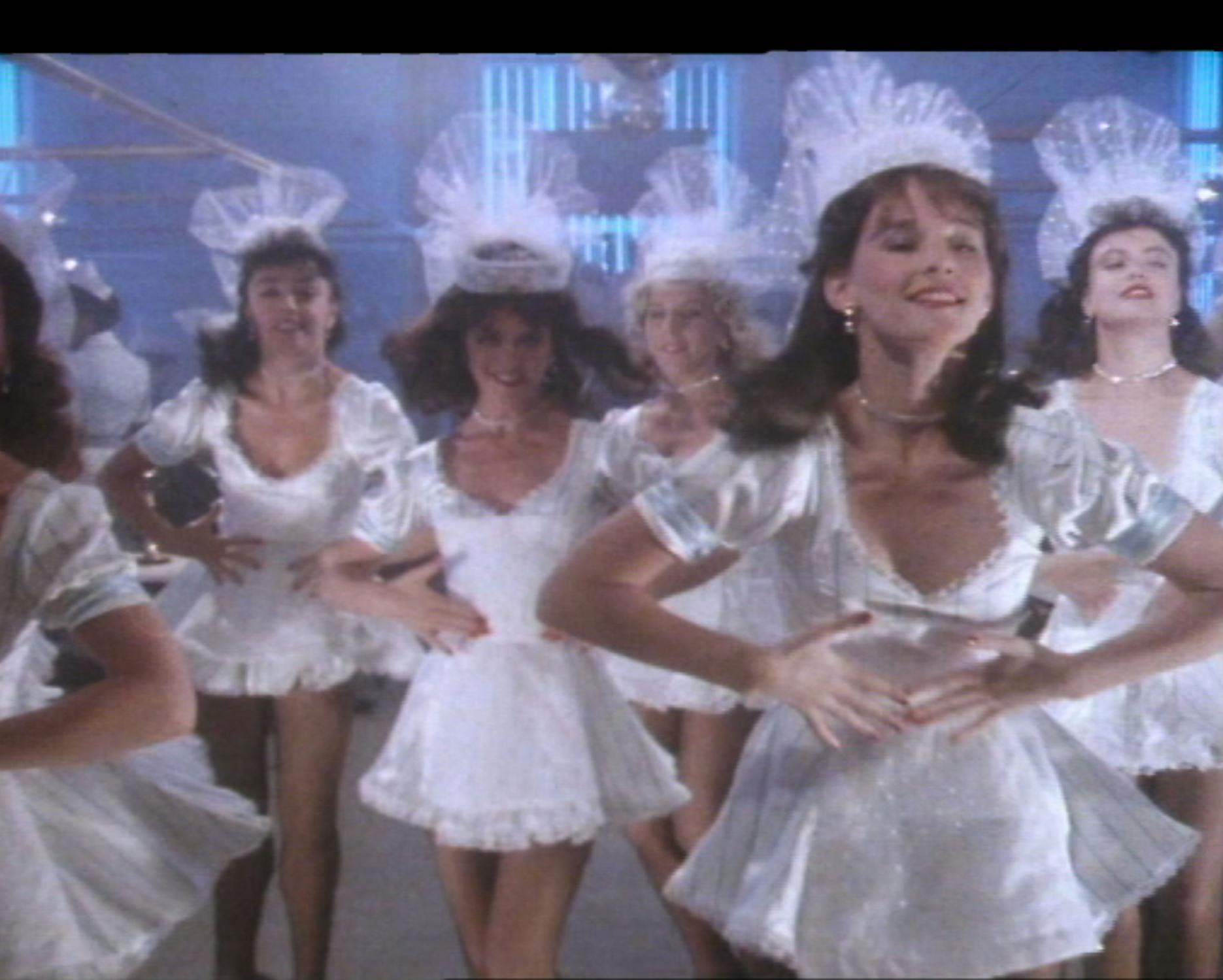
The Singing Detective (1986)
Saturday 25–Sunday 26 October 2025, 11 am–6 pm
The Singing Detective stars Michael Gambon as Philip Marlow, a writer suffering from a debilitating skin condition who escapes into noir-styled fiction, music and memory to make sense of his life and overcome his illness, the root of which is believed to be psychological.
Mirroring Potter’s own struggle with illness and his upbringing in a coal-mining community, The Singing Detective follows the bedridden writer through memories and hallucinations as he relives his pulp thriller stories and takes on a detective alter-ego. Supporting performances include Patrick Malahide as Mark Binney and Janet Suzman as Marlow's ex-wife Nicola, alongside Alison Steadman, who later appears in Potter's final work, Karaoke. Fusing Potter’s key themes – childhood, memory, trauma and fantasy – the serial redefined television drama and showcased his peak as a writer of deeply personal, formally daring work.
Writer: Dennis Potter; Director: Jon Amiel; Producer: John Harris and Kenith Trodd.
This film has a total runtime of approximately 6.5 hours. Visitors are encouraged to come and go freely during the screening.
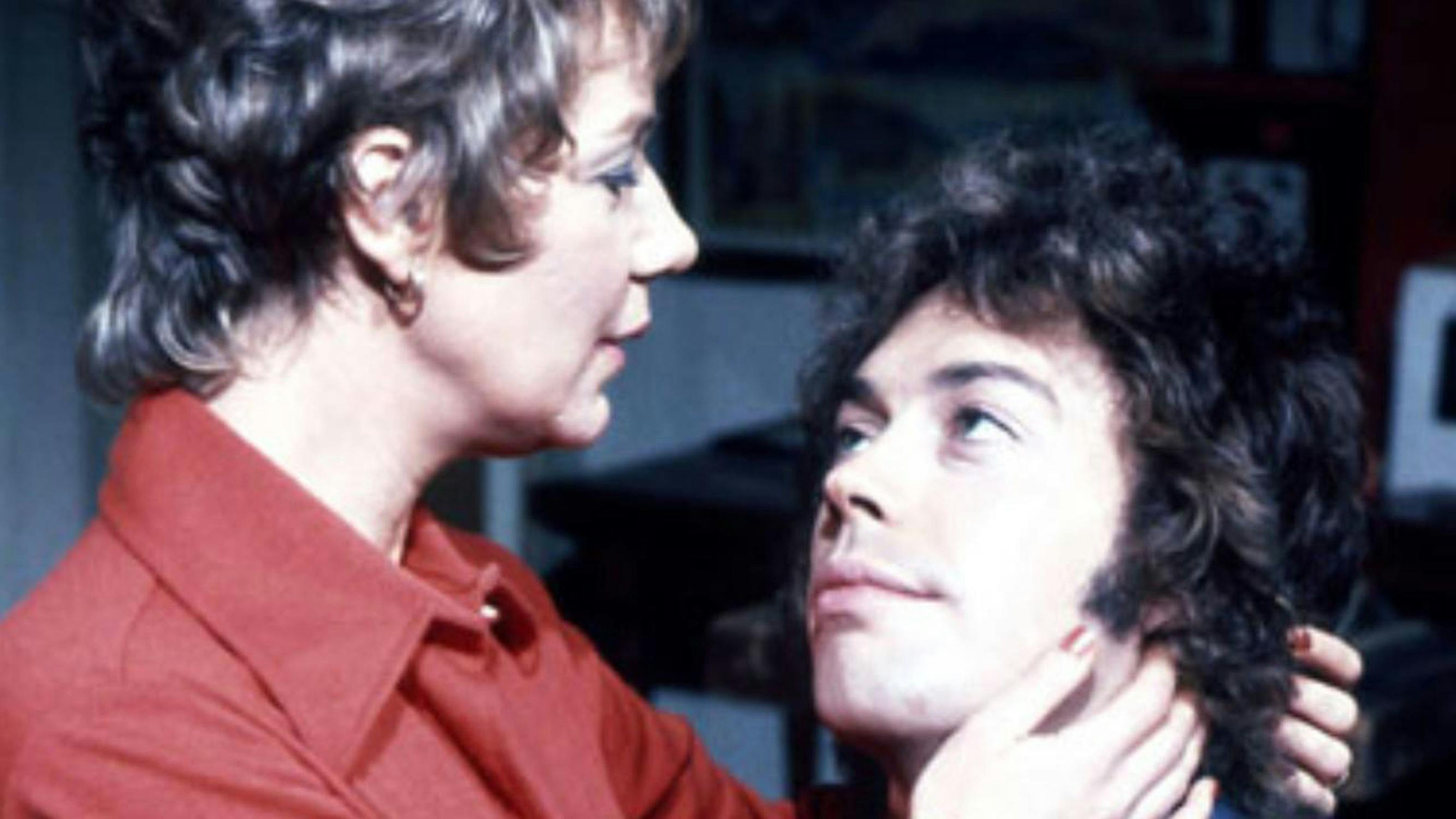
Schmoedipus (1974)
Wednesday 29 October 2025, 7–8.15 pm
Originally aired on BBC1’s Play for Today and later adapted into the film Track 29, this haunting drama is one of Potter’s signature “visitation” pieces. The title Schmoedipus is a play on Freud's Oedipus Complex and stars Tim Curry as Glen, a strange young man who appears at a woman’s home claiming to be her son.
The screenplay explores the complicated relationship between the mother and supposed son, and the complicated guilt she feels for having him adopted after a traumatic teenage pregnancy. Similar to other screenplays by Potter, the narrative broaches ideas of motherhood, memory, disrupted domestic life and hidden trauma.
Schmoedipus was one of Potter's many collaborations with Producer Kenith Trodd, whom he also worked with on Pennies from Heaven, Brimstone and Treacle, Double Dare and The Singing Detective.
Writer: Dennis Potter; Director: Barry Davis; Producer: Kenith Trodd
Runtime: 67 mins
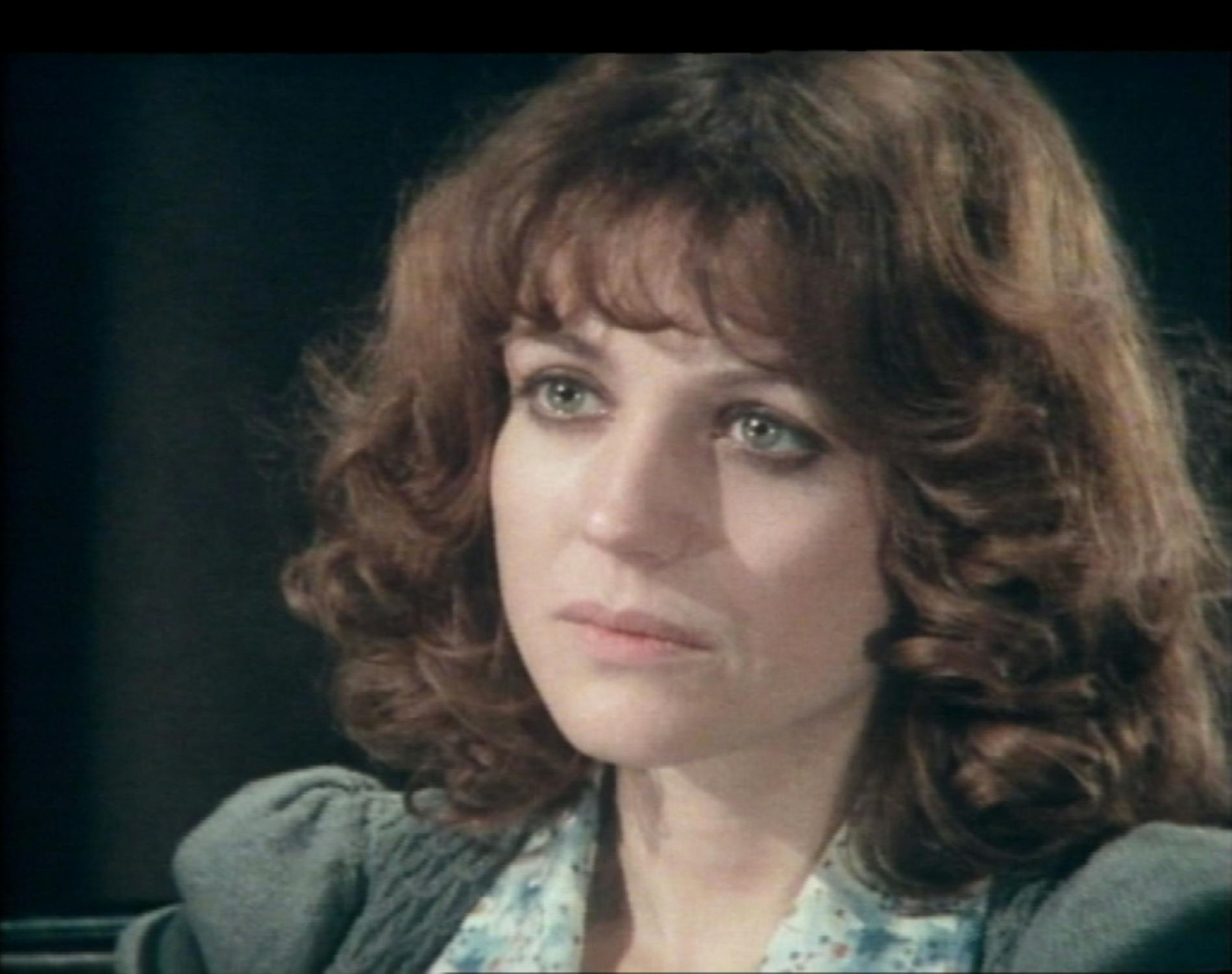
Double Dare (1976)
Wednesday 12 November 2025, 7–8.15 pm
Based on a real meeting between Dennis Potter and actress Kika Markham at a hotel on The Strand, Double Dare is one of Potter’s most exposing and self-referential works. It follows the playwright Martin Ellis (Alan Dobie) and actress Helen, played by Markham, whose meeting mirrors the fictional scenario they’re meant to discuss: a scene between a sex worker and her client.
Initially aired as part of the BBC's Play for Today series, the dialogue between the playwright and actress was said by Markham to be a faithful transcript of her initial meeting with Potter. Faithful to Potter's thematic interests explored in works such as The Singing Detective and Follow the Yellow Brick Road, Double Dare explores the tenuous boundaries between fantasy and reality, author and character.
Writer: Dennis Potter; Director: John Mackenzie; Producer: Kenith Trodd
Runtime: 70 mins
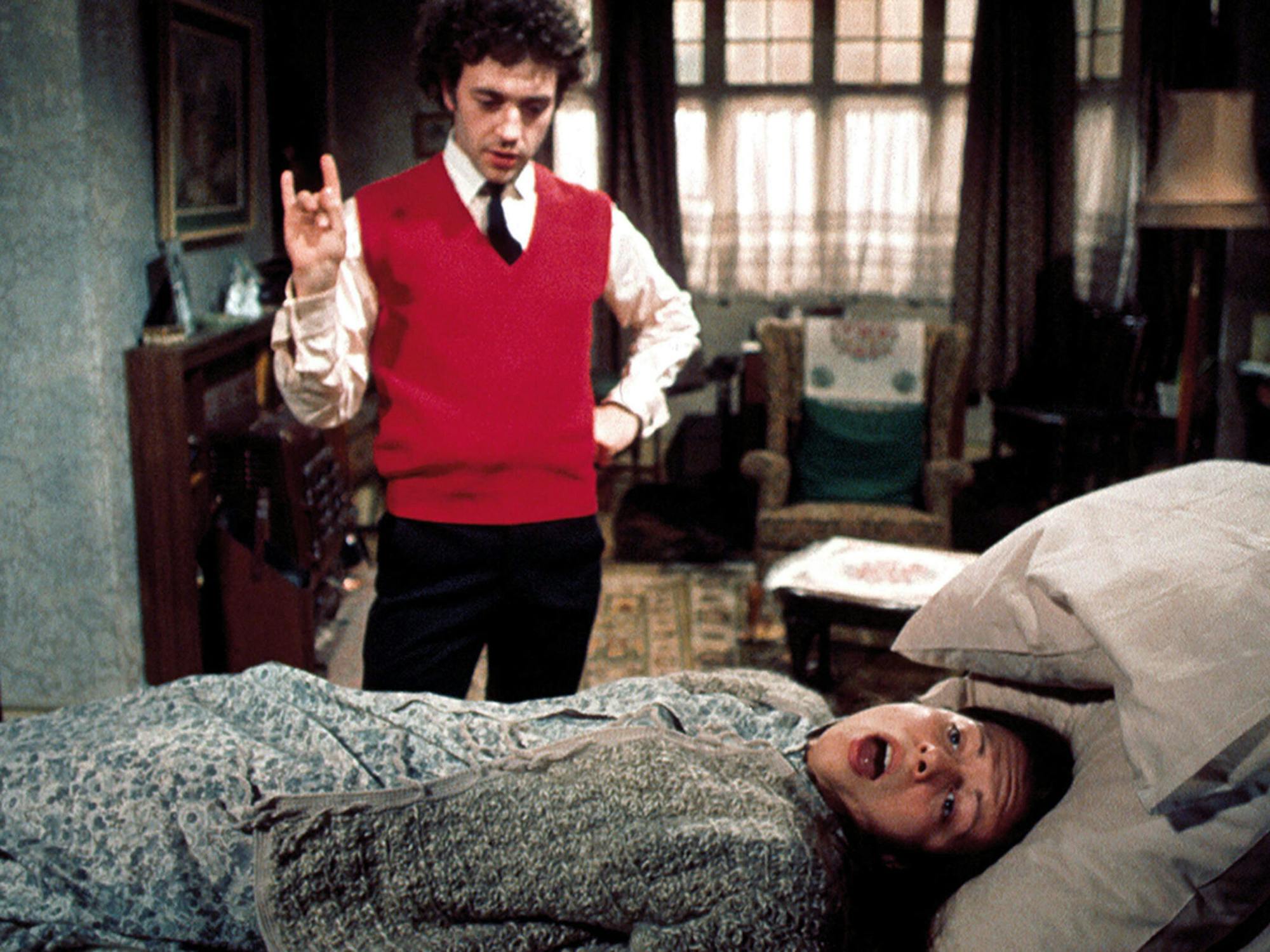
Brimstone and Treacle (1976)
Wednesday 26 November 2025, 7–8.30 pm
Commissioned for the BBC's Play for Today in 1976 but withheld from broadcast until 1987, Brimstone and Treacle was initially pulled from the BBC schedule two weeks before transmission. The Director of Television Programmes Alasdair Milne described the work as "nauseating" though "brilliantly made".
The story sees a manipulative stranger infiltrate the home of a middle-aged couple, ‘the Bates’, whose daughter Pattie is living with physical and cognitive impairments following a hit-and-run accident. The stranger, Martin, insinuates himself into their lives by claiming to be a friend of their daughter, becoming a catalyst for the family to confront their values, faith and ideologies.
A particularly distressing scene involving sexual violence made the film highly controversial. While Brimstone and Treacle is one of Potter’s most notorious works, it is also considered the most significant of his ‘visitation’ dramas, and his radical treatment of morality, religious themes and symbols was a source of debate and provocation throughout his career.
Writer: Dennis Potter; Director: Barry Davis; Producer: Kenith Trodd
Runtime: 85 mins
With thanks to the BFI National TV Archive.
- Dennis Potter, The Singing Detective, 1986. Film still. Copyright BBC Archive.
- Alan Yentob interviews Dennis Potter, Arena, 1987. 61 mins. Film still. With thanks to the BBC Archives
- Alan Yentob interviews Dennis Potter, Arena, 1987. 61 mins. Film still. With thanks to the BBC Archives
- Dennis Potter, A Beast with Two Backs, 1968. Film still. Copyright BBC Archives
- Dennis Potter, Follow the Yellow Brick Road, 1972. Film still, with thanks to the BBC Archives.
- Alan Yentob interviews Dennis Potter, Arena, 1987. 61 mins. Film still. With thanks to the BBC Archives
- Dennis Potter, Schmoedipus, 1974. Film still, with thanks to the BBC Archives.
- Alan Yentob interviews Dennis Potter, Arena, 1987. 61 mins. Film still. With thanks to the BBC Archives
- Dennis Potter, Brimstone and Treacle, 1976. Film still. With thanks to the BBC Archives

